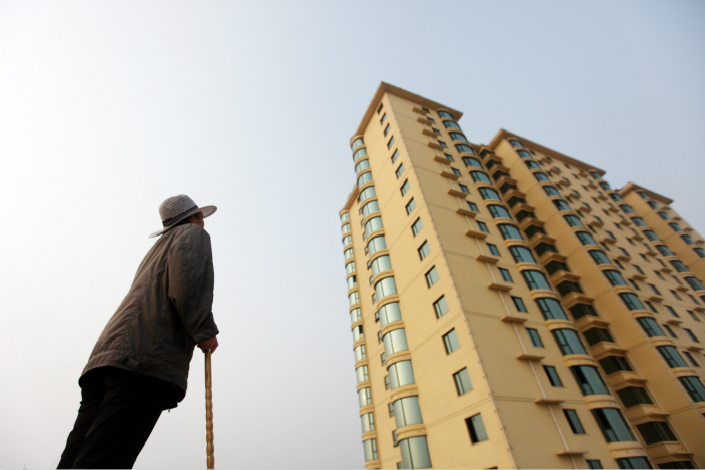Chinese Real Estate Developers’ Overseas Borrowing Rebounds in June

(Beijing) — Offshore bonds issued by Chinese real estate firms rebounded in June as domestic channels for credit remained squeezed by policy tightening.
In less than three months, from the beginning of May through July 25, Chinese real estate developers issued 32 offshore bonds worth a total of 121.3 billion yuan ($18.04 billion), according to Tianfeng Securities’ fixed-income research group, citing Bloomberg data.
As of July 25, Chinese mainland real estate companies have issued a total of 60 offshore bonds, raising funds worth 196.5 billion yuan from overseas, surpassing the total volume from last year, Bloomberg data also showed.
Hong Kong-listed China Evergrande Real Estate Group — China’s second-largest property developer by sales — was among the biggest borrowers, raising a combined $6.6 billion from foreign investors since May, with dollar-denominated bonds of three different maturity terms offered at coupon rates of 8.75%, 7.5% and 6.25% respectively.
Coupon rates on offshore bonds issued by real estate developers averaged 6% to 8%.
A senior executive at a securities firm told Caixin that the official approval given by the National Development and Reform Commission (NDRC) — which oversees offshore corporate debt-issuance — to developers for selling bonds overseas is usually valid for one year. However, it is possible that real estate developers obtained official approval earlier and issued bonds in June, which may have been the cause of offshore bond sales’ hitting a single-month record high of 81.3 billion yuan.
In the second quarter of this year, the NDRC halted approvals. As a result, developers made only 12 offshore bond sales from April 1 to June 15, raising 26.2 billion yuan, down from 25 offerings in the first quarter, which raised 69.9 billion yuan, according to Wind data.
Against the backdrop of the yuan’s weakening against the U.S. dollar last year, offshore bond offerings carried high repayment costs. Despite this, offshore bond sales made by Chinese developers have surged since the second half of 2016. Business insiders told Caixin that the surge resulted from government curbs on bank lending and from new funding to honor financial obligations of previously issued bonds.
In late 2016, regulators put the squeeze on bond sales by real estate developers on China’s two stock exchanges, resulting in reduced funding sources. Offshore bond sales then went up on the heels of the policy tightening.
The offshore bonds issued by Chinese developers are mostly five-year bonds, followed by varieties of three-year and seven-year bonds, Tianfeng Securities found.
Contact reporter Pan Che (chepan@caixin.com)

- 1Cover Story: China Carves Out a Narrow Path for Offshore Asset Tokenization
- 2Drownings Shake Chinese Enthusiasm for Travel to Russia
- 3Over Half of China’s Provinces Cut Revenue Targets
- 4Li Ka-Shing’s Port Empire Hit by Forced Takeover Amid Panama Legal Dispute
- 5In Depth: China’s Mutual Fund Industry Faces Overhaul After a Banner 2025
- 1Power To The People: Pintec Serves A Booming Consumer Class
- 2Largest hotel group in Europe accepts UnionPay
- 3UnionPay mobile QuickPass debuts in Hong Kong
- 4UnionPay International launches premium catering privilege U Dining Collection
- 5UnionPay International’s U Plan has covered over 1600 stores overseas




